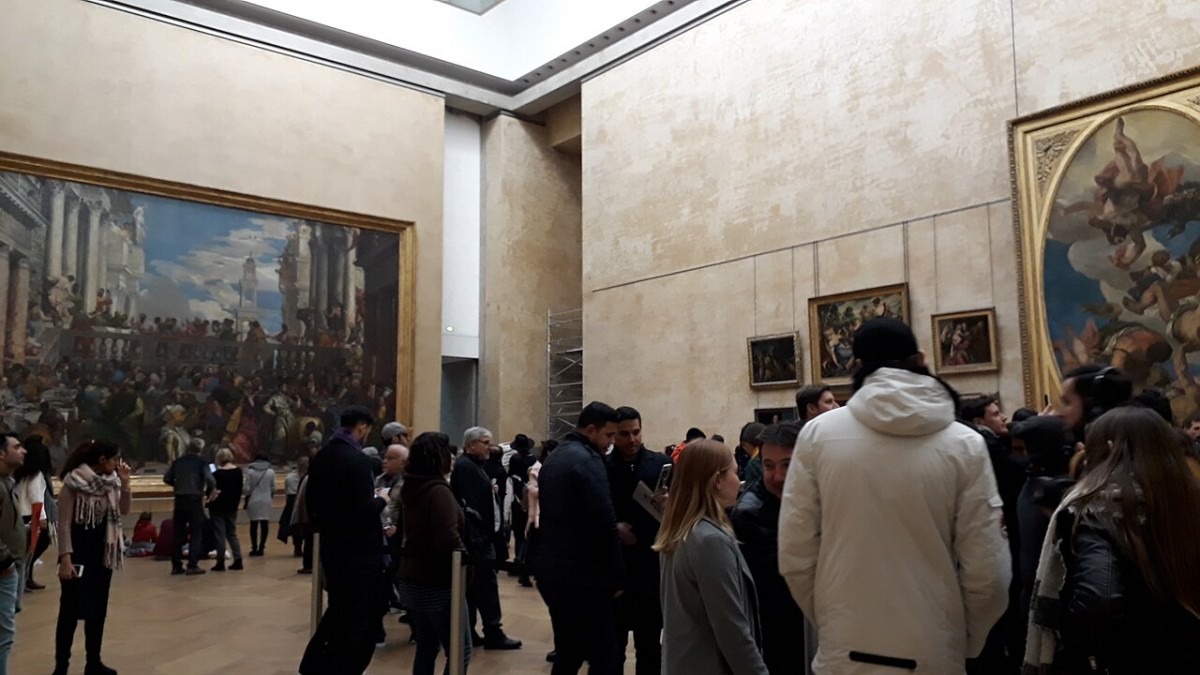Museums are reinvesting their assets as spaces of trust and opening up to new roles in promoting dialogue in social groups.
According to NEMO, the Network of European Museum Organisations, the social role of museums goes far beyond their traditional functions. By embracing community forums as a long-term process, museums can rethink their practices and ensure that they remain connected to their communities and relevant in an ever-changing world.
Recognising the growing social role of museums, not only in preserving heritage, but also in actively shaping the future through community engagement, the NEMO Sustainability and Climate Action Working Group has produced a guide, written by Giulia Valentina Paglia. The publication reports on successful case studies from European museums and offers practical tools for museums to organise and facilitate critical conversations, creating a dynamic and lively atmosphere where participants can discuss different topics, share information and address community issues. The significance of the research lies in the acknowledgment that museums are already undergoing a transformation from traditional repositories of objects to active facilitators of public discourse.
As the authors of the publication point out, "In today's increasingly polarised world, museums bear a crucial responsibility for fostering dialogue between communities. As trusted spaces for cultural preservation, museums have a unique ability to bridge divides by hosting community forums that provide a safe environment for meaningful conversations on complex issues". According to the authors of the guide, with the global shift to the far right, this need has become even more urgent, and the spaces for dialogue that museums can provide will become increasingly important.
Museums are well suited and experienced in developing engaging content and providing open and democratic spaces for thought and discourse. As the following case studies of community forums show, museums are taking these existing skills to new levels. In addition, museums that host community forums benefit from broadening and deepening relationships with their audiences and gaining external perspectives on important issues that might otherwise go unappreciated.
The society forum
The project of the Gesellschaftsforum (Society Forum) brought a citizens’ assembly to a museum environment. It was initiated by the curators Amelie Klein and Vera Sacchetti and commissioned by Bundeskunsthalle Bonn and the Staatliche Kunstsammlungen Dresden (SKD), two major cultural institutions in the West and East of Germany. The project took place in preparation of the exhibition All In! Re-Designing Democracy, which both institutions hosted in 2024 and 2025. The two institutions employed a lottery system to select participants, ensuring diverse representation from the local community. Approximately 2,000 invitations were sent out. This process resulted in a 10% acceptance rate, highlighting strong citizen interest. Each assembly comprised 35 people who met for four days of informed deliberation on museum-related questions posed by staff. This diverse group included individuals who rarely visit museums, providing unique and valuable insights that would have been difficult to capture otherwise. Participants recommended, among other things, co-creation processes in which visitors and museum staff work together to create works, and allowing visitors to vote on the types of exhibitions they would like to see. Additionally, the idea of establishing a permanent Citizens’ Assembly to advise the Bundeskunsthalle on strategic decisions more systematically was proposed, ensuring ongoing community involvement in museum operations.
Focus group study at the ‘Museum and Gallery’ Tivat
In a similar vein of community engagement, a focus group study was conducted at the ‘Museum and Gallery’ Tivat, led by Professor Miloš Milenković, Ph.D., an ethnologist-anthropologist at the Faculty of Philosophy of the University of Belgrade. This study, executed in cooperation with the Institute of Social Sciences from Belgrade and the Ethnographic Institute of the National Academy of Sciences of Belgrade, aimed to gather insights and opinions from various stakeholders in Montenegro regarding the inclusive and participatory preservation of intangible cultural heritage.The discussions delved into perceptions, challenges, and opportunities in managing intangible cultural heritage within a multicultural and multi-ethnic context, emphasising reconciliation and coexistence.
Face to face with research
The ‘A tu per tu con la ricerca’ (face to face with research) project at the Museo Nazionale della Scienza e della Tecnologia in Milan, Italy, exemplifies an effective practice in engaging the public with science and technology.This initiative offers a variety of activities designed to make science accessible and stimulating for various audiences. Key features of the project include hands-on laboratory experience, which allow participants to engage directly with scientific experiments and technologies, thus fostering a deeper understanding of scientific concepts through practical application. Additionally, the project includes a ‘Speed Date with Researchers,’ where attendees can interact with researchers in quick-paced discussions, ask questions, and gain insights into the latest scientific developments, thereby encouraging dynamic and personal exchanges of knowledge. The ‘3 Minutes of Fame’ competition challenges researchers to present their work engagingly and succinctly within three minutes, making complex scientific ideas understandable and exciting for a general audience.
EU-LAC Museums: Fostering cultural sustainability and intercultural dialogue
The EU-LAC Museums project is another exemplary initiative focusing on community engagement and promoting cultural sustainability and intercultural dialogue between museums across Europe, Latin America, and the Caribbean. By leveraging digital tools and bi-regional knowledge exchanges, the project enhances the educational and societal role of museums, connecting diverse
communities and fostering mutual understanding. This approach not only supports local museums
but also strengthens their capacity to address global challenges through cultural exchange and
community-focused programming. Moreover, the project highlights the importance of cultural diversity and the exchange of ideas, fostering a global perspective on heritage and sustainability. By
involving local communities in the dialogue, the project ensures that the voices of diverse populations are heard, thus contributing to a more inclusive and representative cultural sector. One of the significant benefits of such networks is the increased confidence and capability of museums
to tackle complex issues.
You can find the publication here
--
Photo credit: Sandra Soster
Photo source








